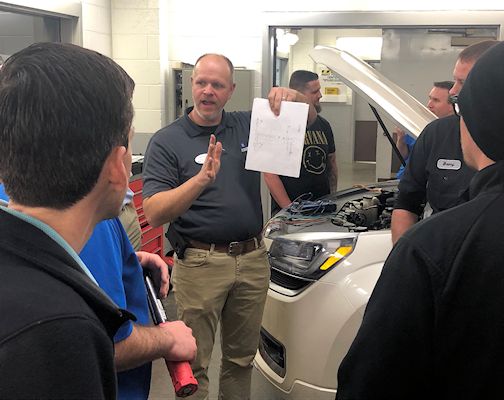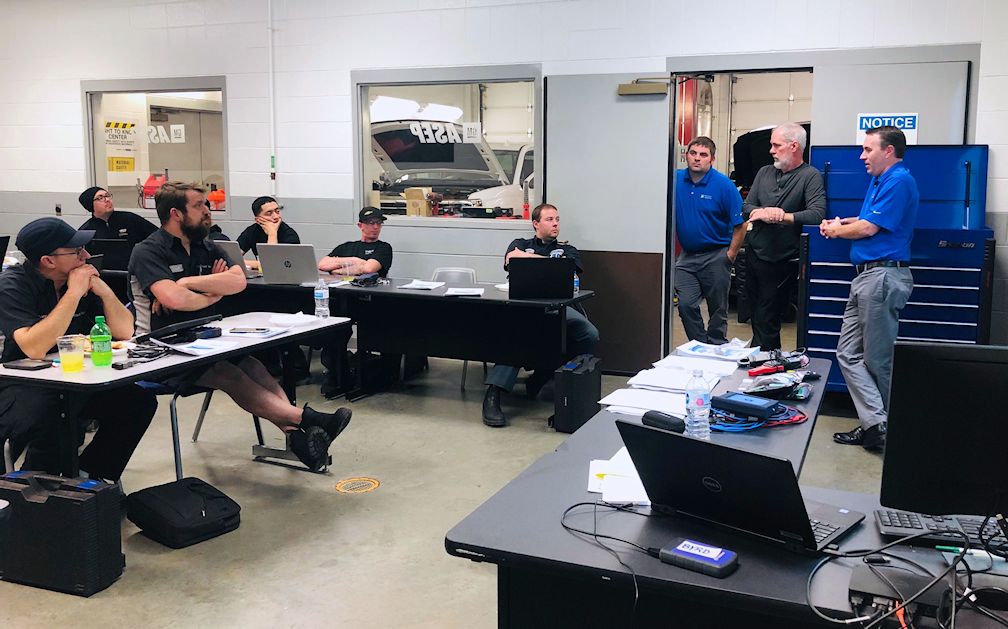Wayne Community College recently was tapped to host troubleshooting training for a special group of General Motors technicians.
The college provided a “Sharpshooter Clinic” on data system diagnosis for 18 technicians from the Raleigh area and eastern North Carolina who were hand-picked by GM district management for the event.
Such clinics that provide training on special topics such as in-depth diagnostic routines or emerging technologies have been conducted across the country but not in this state.

“This was the first time we have done this in NC. Our area’s GM Field Service Engineers (FSEs) approached me and asked if I could help them get it set up and use our facilities,” said WCC GM Automotive Service Educational Program (ASEP) Coordinator David Byrd.
Byrd and fellow WCC Automotive Instructor Joseph Braswell, along with GM FSEs for North Carolina Steve Mohr and Jim Chirichello and Richmond, Virginia-area FSE Kevin Lockhart, led the clinic.

Their three-hour session was about special equipment such as a PicoScope Oscilloscope and GM software to demonstrate some of the diagnostic techniques that are normally not required “run of the mill” diagnostic situations, explained Byrd.
“It was a big success and there has been some talk about doing it again with a different group of technicians,” Byrd said.
Wayne Community College is one of 50 colleges across the country that has the GM ASEP program that prepares students to be GM Certified Service Technicians. In addition to automotive technical training and academics, students gain experience working with experienced technicians in GM dealerships. In addition to more than a dozen third-party certifications, students can earn an Automotive Systems Technology GM-ASEP associate in applied science degree.
Wayne Community College is a public, learning-centered institution with an open-door admission policy located in Goldsboro, N.C. As it works to develop a highly skilled and competitive workforce, the college serves 12,000 individuals annually as well as businesses, industry, and community organizations with high quality, affordable, accessible learning opportunities, including more than 70 college credit programs. WCC’s mission is to meet the educational, training, and cultural needs of the communities it serves.

